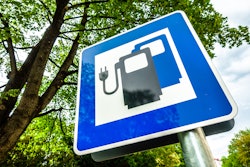The California Air Resources Board (CARB) on Monday submitted comments opposing the U.S. Environmental Protection Agency’s (EPA) push to overturn the 2009 endangerment finding, noting that the EPA’s proposal ignores more than 15 years of its own research and regulations.
“Let’s just say the quiet part out loud: EPA’s proposal is a stunningly sloppy and amateurish effort to sow doubt where there is no doubt,” said CARB Chair Liane Randolph. “And EPA cannot simply repeal its own standards based on a political whim. The agency owes the American people straight, honest answers as to why it is proposing to carelessly risk their health, lives and property.”
In a separate comment, California Governor Gavin Newsom called the proposal "not just putting politics over evidence, it is bad policy, a dereliction of duty, a moral abdication, and a betrayal of the very mission entrusted to (the EPA)."
The EPA has for almost 20 years required medium- and heavy-duty diesel vehicles to use Diesel Exhaust Fluid (DEF) and aftertreatment systems to reduce nitrogen oxide (NOx) emissions. In July, the Trump administration targeted the endangerment finding for repeal, which has allowed presidential administrations to regulate six greenhouse gases (carbon dioxide, methane, nitrous oxide, hydrofluorocarbons, perfluorocarbons, and sulfur hexafluoride) since 2009.
"Small-business truckers make up 96% of trucking and could be regulated out of existence if this nonsensical rule were to be implemented," said Owner-Operator Independent Drivers Association (OOIDA) President Todd Spencer about EPA's past moves toward electric vehicles. OOIDA also filed comments in support of the endangerment finding repeal. "Mom-and-pop trucking businesses would be suffocated by the sheer cost and operational challenges of effectively mandating zero-emission trucks. Vehicle reliability and affordability are top priorities for OOIDA members, and we have yet to see proof that electric commercial motor vehicles are a practical option for most trucking businesses considering the price tag and lack of charging infrastructure."
CARB’s comments note that the U.S. Department of Energy report on which the EPA is relying was assembled by "a small group of self-described climate skeptics and is almost totally devoid of scientific evidence to support or explain how they reached their conclusions."
Instead, CARB countered, the document relies on flawed, disproven assertions and data taken out of context. In addition, CARB said, the EPA acknowledges that it is relying on the DOE report because it does not trust its own analysis, "shamelessly ceding its responsibility to another agency whose current mandate is to prop up fossil fuels at any cost, including public health," according to CARB.
EPA Administrator Lee Zeldin claims rescinding the endangerment finding and resulting regulations would end $1 trillion or more "in hidden taxes on American businesses and families.”
The proposal, if finalized, would remove all Biden- and Obama-era greenhouse gas standards for light-, medium- and heavy-duty vehicles and heavy-duty engines, starting with EPA’s first greenhouse gas regulations set in 2010 for light-duty vehicles and those set in 2011 for medium-duty vehicles and heavy-duty vehicles and engines, which includes off-cycle credits like the start-stop feature on most new cars.
"The Trump Administration wants you to believe that this is a battle about gas-powered cars versus electric ones. That’s a lie," said California's Secretary for Environmental Protection Yana Garcia. "California is fighting for lives. Decades upon decades of science show that climate-warming gases produced by cars, trucks, power plants, and gas facilities are killing people. The proof is clear—more smog, more asthma, and more emergency room visits. Instead of standing up for everyday people and businesses, Trump’s EPA is cannibalizing itself to dodge its responsibility to protect health, safety, and the economy. There’s nothing patriotic about abandoning Americans."
CARB charges the EPA with ignoring "the tragic and painful experiences of thousands of Americans who’ve been severely harmed by more intense wildfires, hurricanes, and other natural disasters made worse by climate change. The proposal also discounts the billions of dollars in economic loss sustained each year by the country and the people who live here."
In 2023 alone, according to Newsom, the United States endured 28 separate climate-driven weather disasters exceeding $1 billion in damage each — the highest number ever recorded — claiming more than 400 American lives and causing $92 billion in damages.
CARB further points out that the EPA leaves no obvious paper trail leading to the environmental impacts of its proposal and therefore provides no opportunity for informed public comment on those impacts. That is fundamental to the sound development of environmental regulations, CARB said, and is illegal since it turns a blind eye to the EPA’s obligations under the National Environmental Policy Act.











